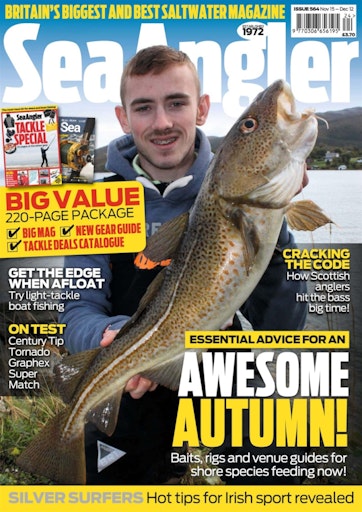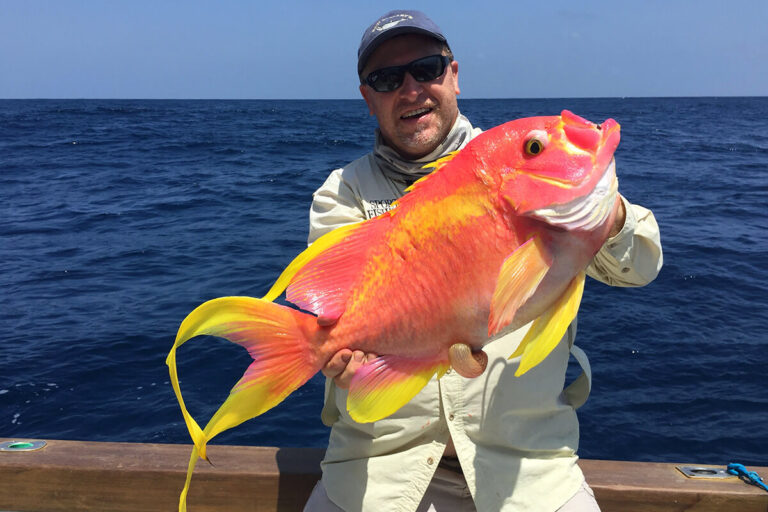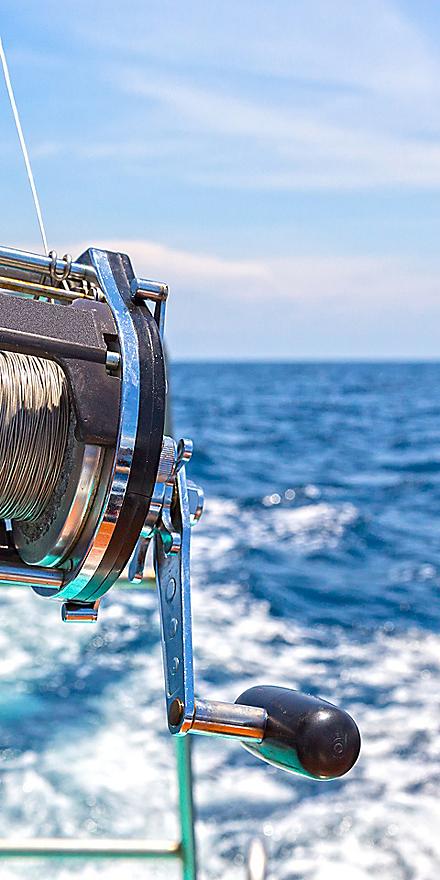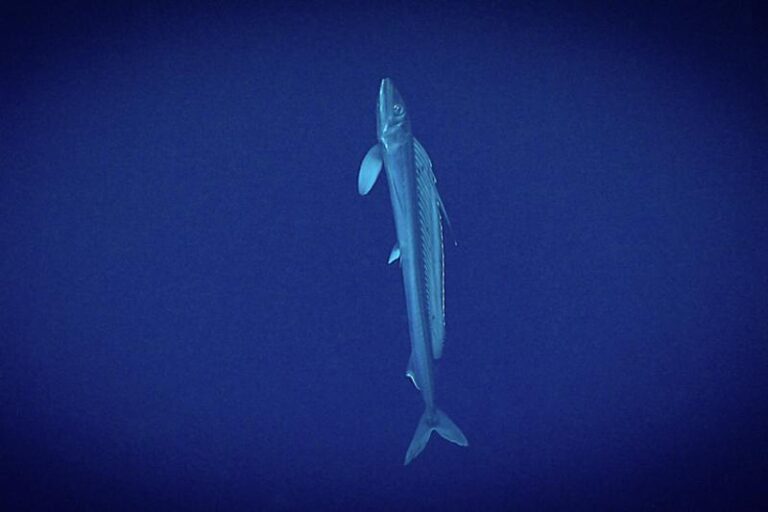To read deep sea fishing weather conditions, analyze wind speed, direction, wave height, and temperature. By monitoring these factors, you can determine if the conditions are suitable for fishing in deep waters.
It is essential to pay attention to the wind direction, which affects the currents and the trolling speed. Waves should be moderate, as both calm and rough waters can make fishing challenging. Additionally, check the temperature to understand the fish’s behavior and feeding patterns.
Combining these factors will help you make informed decisions for a successful deep sea fishing trip.

Credit: www.theguardian.com
Understanding The Importance Of Weather Conditions In Deep Sea Fishing
When it comes to deep sea fishing, understanding the importance of weather conditions is crucial for a successful and rewarding experience. Weather factors play a significant role in determining the behavior of fish and can greatly influence fishing conditions out on the open sea.
By having a good grasp of the weather conditions, you can improve your chances of having a productive and enjoyable fishing trip. In this section, we will explore the weather factors that affect deep sea fishing and highlight why understanding these conditions is essential for success.
Weather Factors Affecting Deep Sea Fishing
To effectively read deep sea fishing weather conditions, it is vital to consider the following factors:
- Wind: Wind direction and speed are crucial indicators of fishing conditions. Strong winds can create rough seas, making it challenging to navigate or fish comfortably. Additionally, wind patterns influence the movement of baitfish and other prey species, which in turn affects the behavior and location of game fish.
- Temperature: Water temperature plays a significant role in determining the feeding patterns and locations of fish species. Some fish are more active in warmer waters, while others thrive in cooler temperatures. Understanding the temperature preferences of your target species can help you identify the best areas to fish.
- Barometric pressure: Changes in barometric pressure affect the behavior and feeding patterns of fish. When the atmospheric pressure is high, fish tend to remain close to the surface and become more active. Conversely, low pressure can push fish deeper into the water column, requiring different fishing techniques to entice a bite.
- Tides and currents: The movement of tides and currents greatly impacts fishing conditions. Certain fish species are more active during specific tidal phases, such as feeding during high tide or seeking shelter during low tide. Additionally, understanding current patterns can help you locate productive fishing spots where baitfish and predators congregate.
- Precipitation: Rainfall and other forms of precipitation can alter water conditions, including turbidity and salinity. Different species of fish have varying responses to these changes, with some becoming more active and others seeking shelter. Monitoring precipitation patterns can give you insights into when and where to target specific fish species.
- Moon phase: The lunar cycle affects fish behavior, particularly in relation to feeding activity. Some species are more active during specific moon phases, such as during the full moon when there is increased visibility. Planning your fishing trips around favorable moon phases can significantly enhance your chances of success.
Understanding these weather factors and how they influence fish behavior can help you make informed decisions about when, where, and how to fish. By interpreting weather conditions, you can strategize your fishing approach, select appropriate gear, and increase the likelihood of a rewarding deep sea fishing experience.
So, next time you plan a deep sea adventure, be sure to check the weather forecast and consider these crucial weather factors to maximize your chances of reeling in the big ones!
Preparing For Deep Sea Fishing In Various Weather Conditions
Deep sea fishing is an exhilarating and challenging experience, but it’s important to be prepared for whatever weather conditions you may encounter out on the open water. Knowing how to read and understand the weather patterns can make a big difference in the success and safety of your deep sea fishing trip.
In this section, we will discuss the gear and equipment you’ll need for different weather scenarios, as well as the safety precautions you should take in inclement weather.
Gear And Equipment For Different Weather Scenarios
When it comes to deep sea fishing, having the right gear and equipment is essential for a successful outing. Here are the key points to consider when preparing for various weather conditions:
- Sunny and calm weather:
- Sunscreen: Protect your skin from harmful uv rays by applying a high spf sunscreen before heading out.
- Light clothing: Opt for lightweight and breathable clothing to stay cool and comfortable under the sun.
- Hat and sunglasses: Shield your eyes and face from the sun’s glare with a wide-brimmed hat and polarized sunglasses.
- Sufficient water: Staying hydrated is crucial, so bring enough water to drink throughout the trip.
- Windy and choppy conditions:
- Wind-resistant clothing: Wear windproof jackets or waterproof layers to help keep you warm and dry in challenging conditions.
- Anti-seasickness medication: If you’re prone to motion sickness, consider taking medication or using alternative remedies to prevent seasickness.
- Grip-enhancing gloves: To maintain a steady grip on your fishing rod, gloves with non-slip palms are a great investment.
- Safety harness: When the wind picks up, it’s important to have a safety harness to secure yourself to the boat and prevent falls.
- Rainy weather:
- Waterproof gear: Invest in waterproof jackets, pants, and boots to keep you dry during downpours.
- Dry bags: Protect your valuables, such as electronics and personal items, by storing them in waterproof dry bags.
- Portable shelter: Consider bringing a portable canopy or shelter to shield yourself from heavy rain.
Safety Precautions For Inclement Weather
While deep sea fishing can be thrilling, it’s crucial to prioritize safety, especially in inclement weather. Here are the key safety precautions to take:
- Stay informed: Keep an eye on weather forecasts and updates before and during your deep-sea fishing trip.
- Check sea conditions: Be aware of wave heights, wind speeds, tides, and any storm warnings issued by local authorities.
- Follow captain’s instructions: Listen to your captain’s advice and instructions at all times to ensure a safe and enjoyable outing.
- Wear a life jacket: Regardless of the weather, always wear a properly-fitted life jacket for added safety on the water.
- Communicate with others: Inform someone on land about your deep-sea fishing plans, including your intended location and estimated time of return.
- Seek shelter: If the weather conditions worsen suddenly, head back to shore or find a safe harbor to wait out the storm.
By being well-prepared and equipped with the right gear, as well as understanding the necessary safety precautions, you can make the most of your deep sea fishing adventure in any weather conditions. Remember, safety should always be the top priority to ensure a memorable and enjoyable experience on the open water.
Expert Tips For Mastering Deep Sea Fishing In Different Weather Conditions
Deep sea fishing can be an exhilarating and rewarding adventure, but understanding and interpreting the weather conditions is crucial for a successful trip. Whether you’re fishing in calm and sunny weather, battling through windy and choppy conditions, or braving the storms and rough seas, knowing the right techniques and strategies is key.
In this section, we’ll explore expert tips for mastering deep sea fishing in various weather conditions.
Tips For Fishing In Calm And Sunny Weather
When the sea is calm and the sun is shining, deep sea fishing can be a truly enjoyable experience. Here are some tips to make the most of these ideal conditions:
- Choose the right location: Look for areas where ocean currents converge or create underwater structures, attracting fish.
- Fish at the right time: Early mornings or late afternoons are often the most productive times to fish in calm and sunny weather.
- Go deeper: In such pleasant conditions, fish tend to stay in deeper waters to find cooler temperatures and more food sources.
- Use natural bait: Opt for bait that mimics the natural prey of the target fish species, such as live or fresh dead bait.
- Vary your presentation: Experiment with different fishing techniques like trolling, drifting, or bottom fishing to find what works best.
Techniques For Fishing In Windy And Choppy Conditions
Fishing in windy and choppy conditions can pose a challenge, but with the right techniques, you can still have a successful catch. Consider the following tips:
- Position your boat strategically: Use the wind to your advantage by positioning your boat upwind of your fishing spot, allowing your bait to drift naturally towards the fish.
- Choose the right lures: Opt for lures that create vibrations or have bright colors to attract fish in murky waters.
- Be patient and persistent: Fish may be more scattered in choppy conditions, so cast your line multiple times in different spots and depths.
- Modify your fishing style: Switch to a technique that keeps your bait closer to the surface, such as topwater fishing or using a bobber.
- Stay safe: Ensure you wear appropriate safety gear and keep an eye on the weather conditions to avoid any risks.
Strategies For Fishing During Storms Or Rough Seas
Fishing during storms or rough seas requires caution and careful planning. While it may not be ideal, it is still possible to land a catch. Here are some strategies to consider:
- Safety first: Always prioritize your safety and that of your crew. Check for any weather advisories and be prepared for changing conditions.
- Seek sheltered areas: Look for natural or man-made structures that offer protection from the waves and wind, such as coves, reefs, or breakwaters.
- Focus on structure: Fish often seek refuge near structures during storms, so target areas with submerged rocks, wrecks, or drop-offs.
- Opt for heavy tackle: Use stronger lines, heavier sinkers, and larger bait to withstand the rough conditions and attract larger fish.
- Try vertical jigging: This technique can be effective in stormy weather as it allows you to fish directly beneath the boat, minimizing the impact of the waves.
Remember, deep sea fishing is not just about catching fish; it’s about enjoying nature’s beauty and the thrill of the open water. With these expert tips for different weather conditions, you’ll be well-prepared to make the most of your deep sea fishing adventures.
Happy fishing!
Conclusion
Understanding how to read deep sea fishing weather conditions is essential for a successful and safe fishing experience. By being equipped with the knowledge of various weather factors such as wind, tide, and temperature, anglers can make informed decisions about when to venture out into the open sea.
While many may rely on weather apps or forecasts, it is always advisable to develop the ability to analyze weather conditions independently. By looking at the wind direction, sea surface temperature, and any potential weather patterns, fishermen can anticipate fish behavior and locate the most productive areas.
Additionally, being aware of weather conditions can ensure the safety of both the anglers and their equipment. By considering all these factors, fishing enthusiasts can enhance their chances of catching a prized fish and have an enjoyable experience on the open water.
So next time you plan a deep sea fishing trip, remember to pay attention to the weather conditions and make the most out of your adventure.




